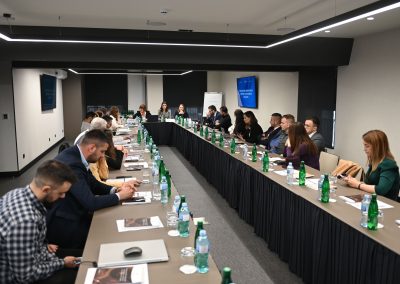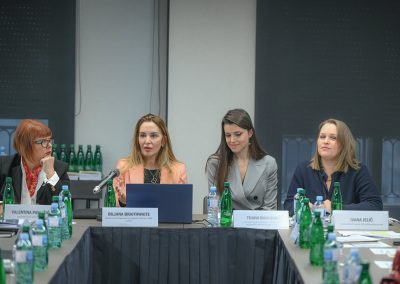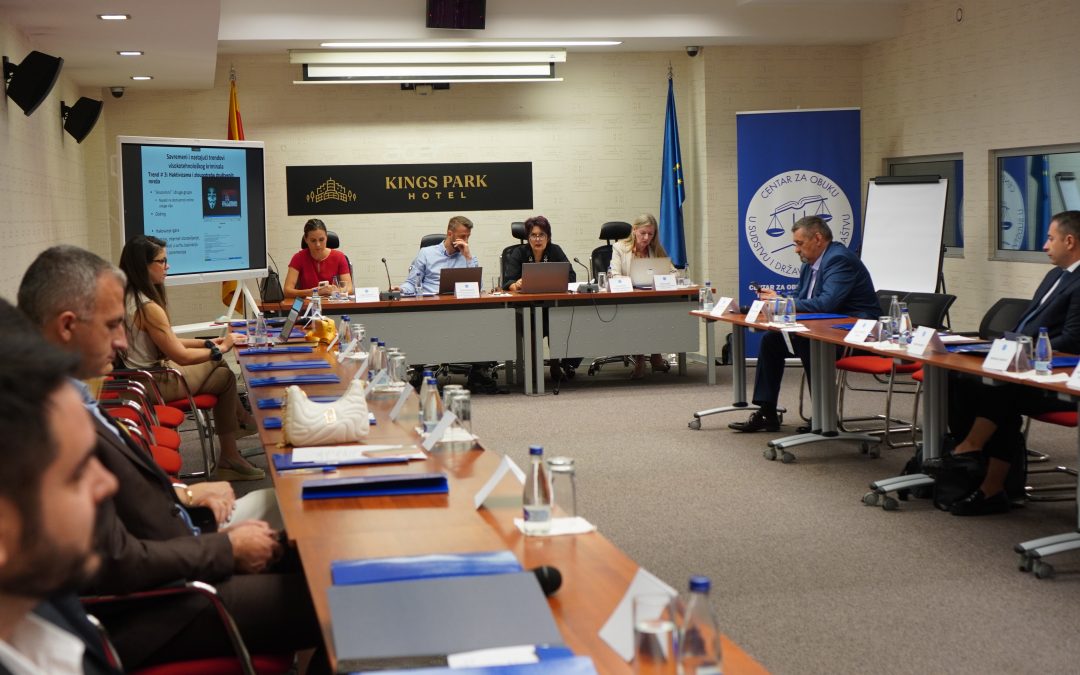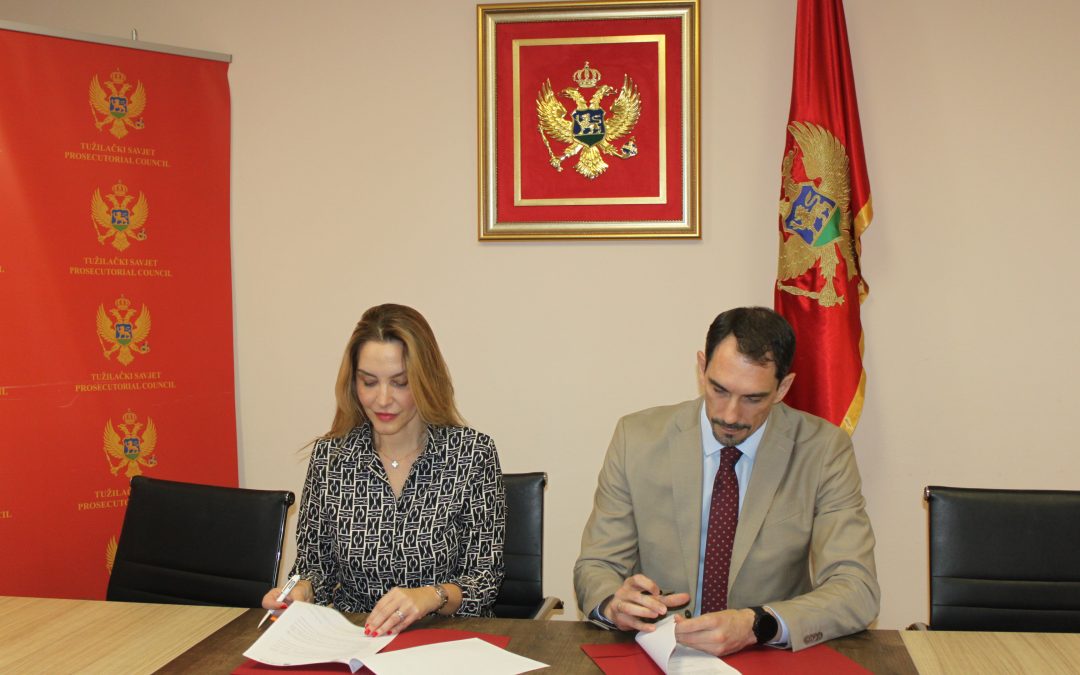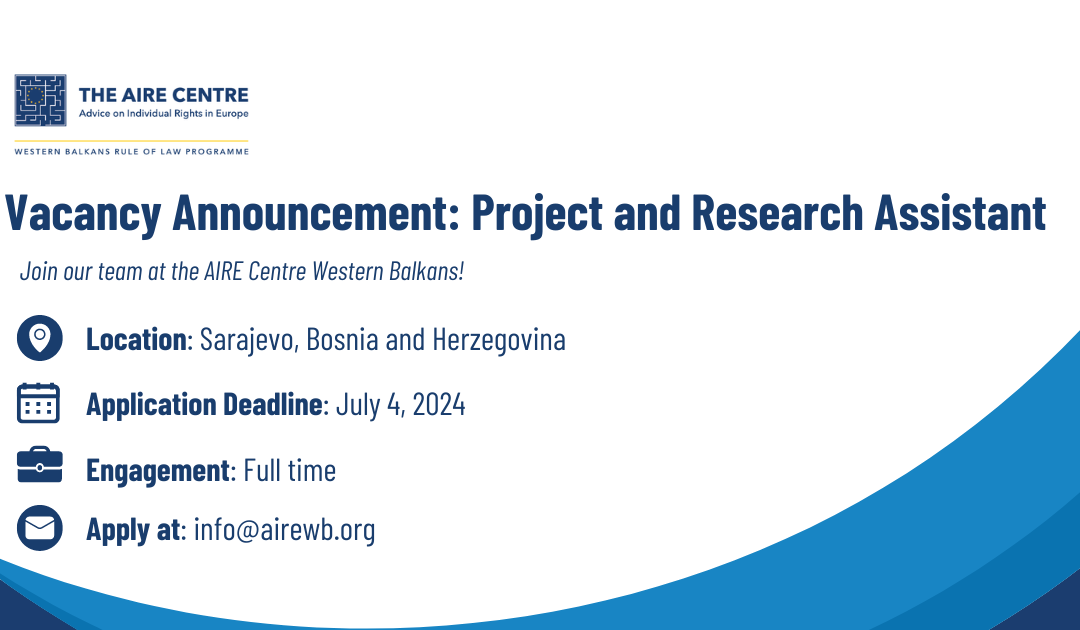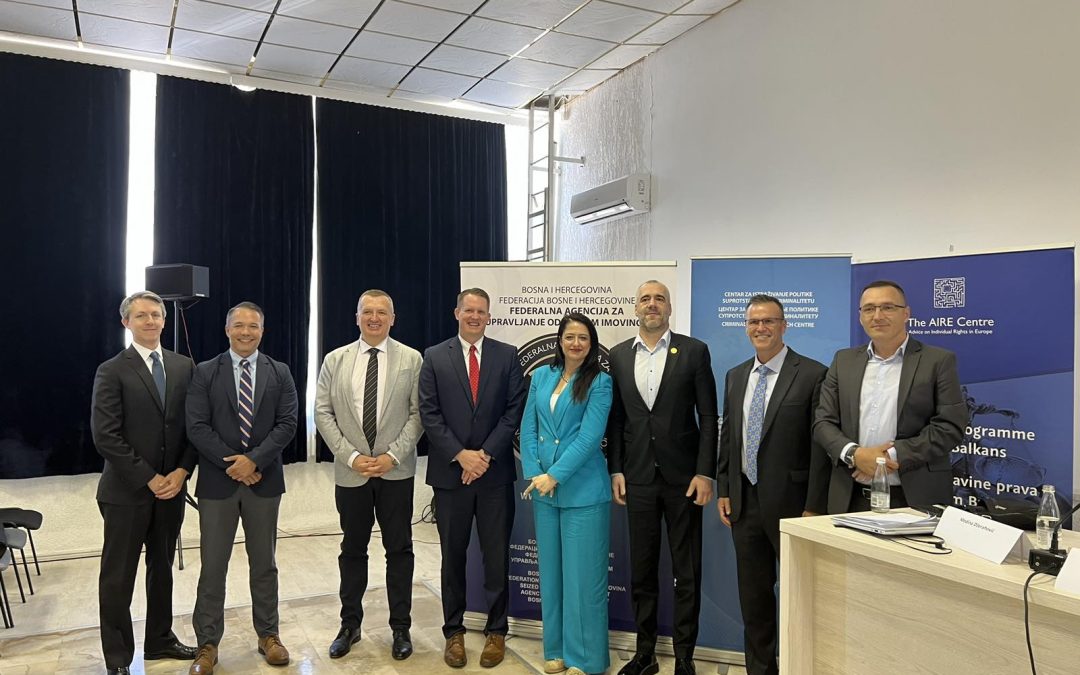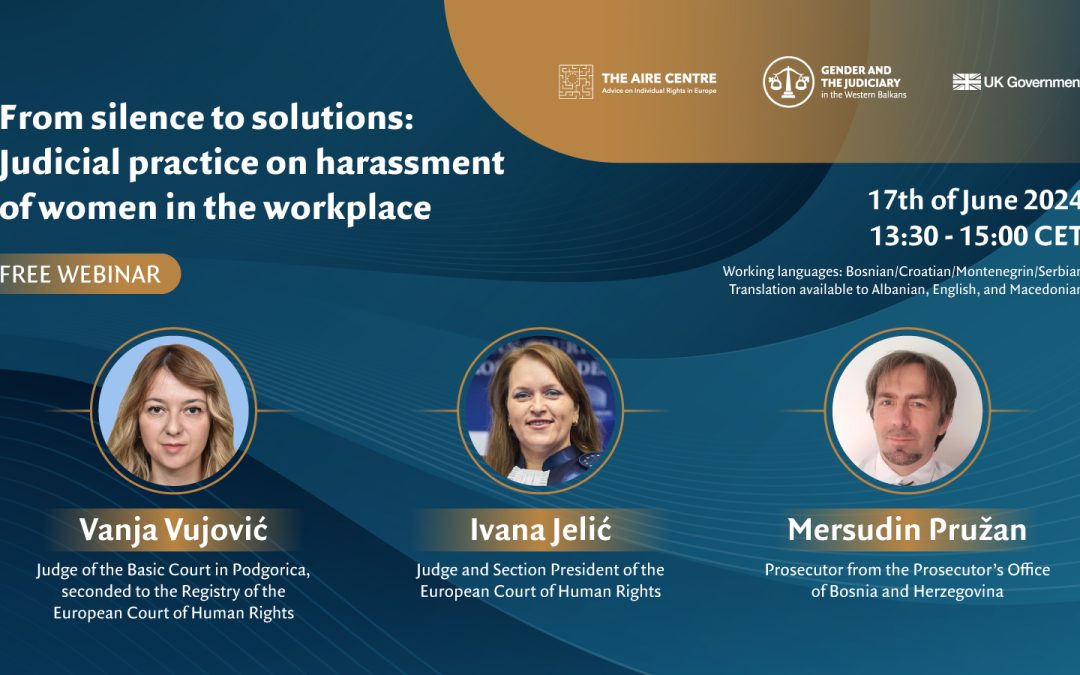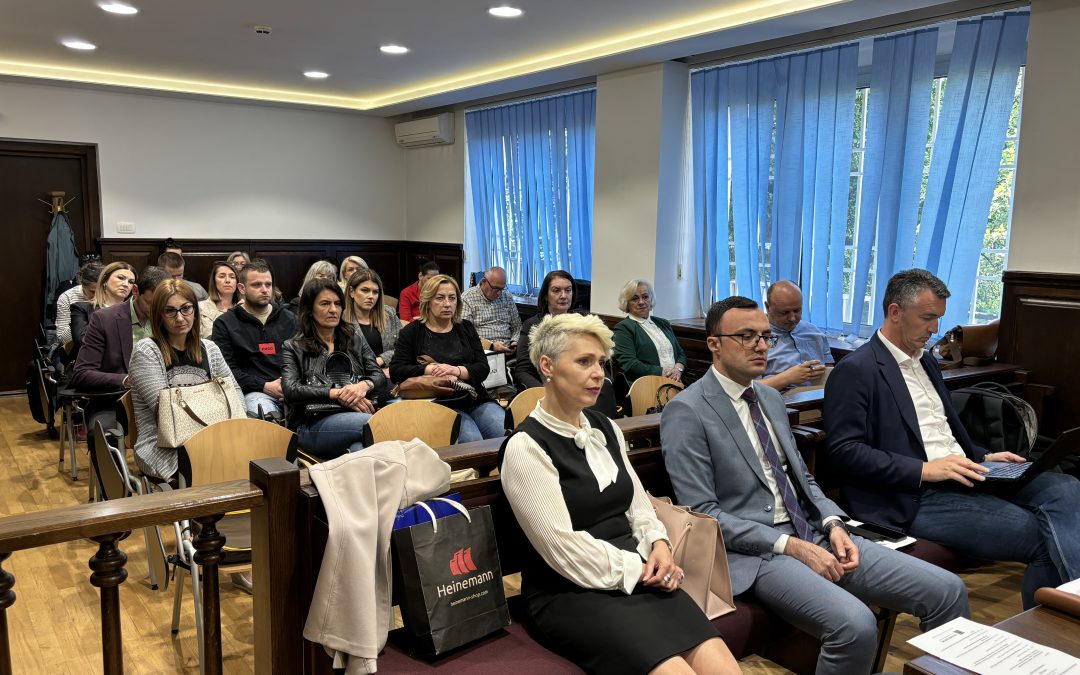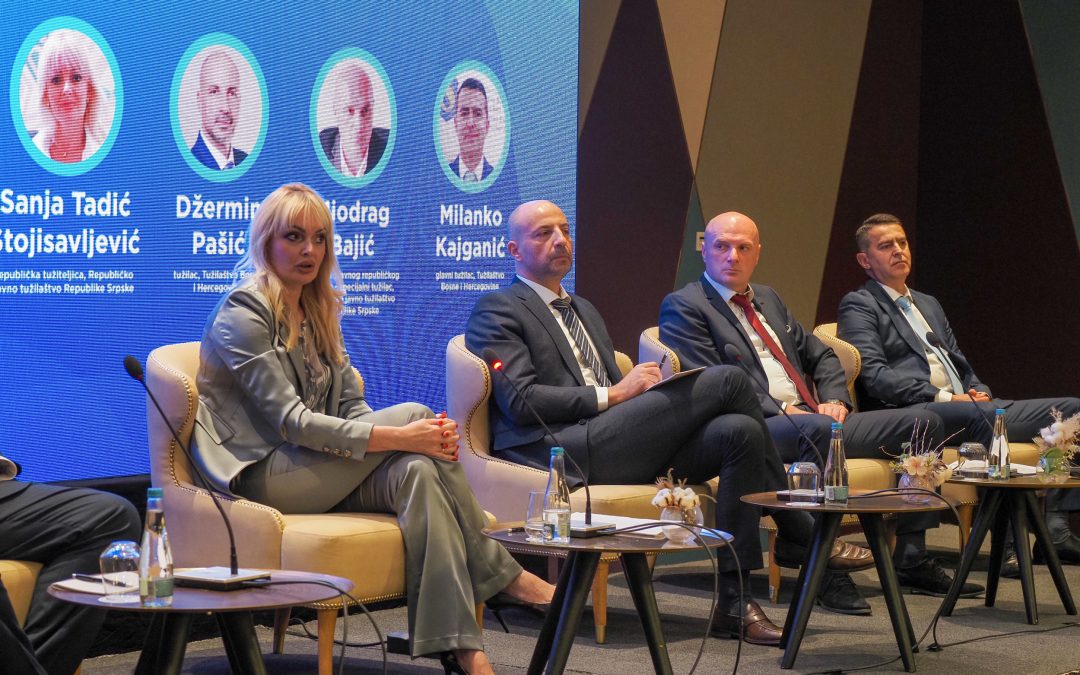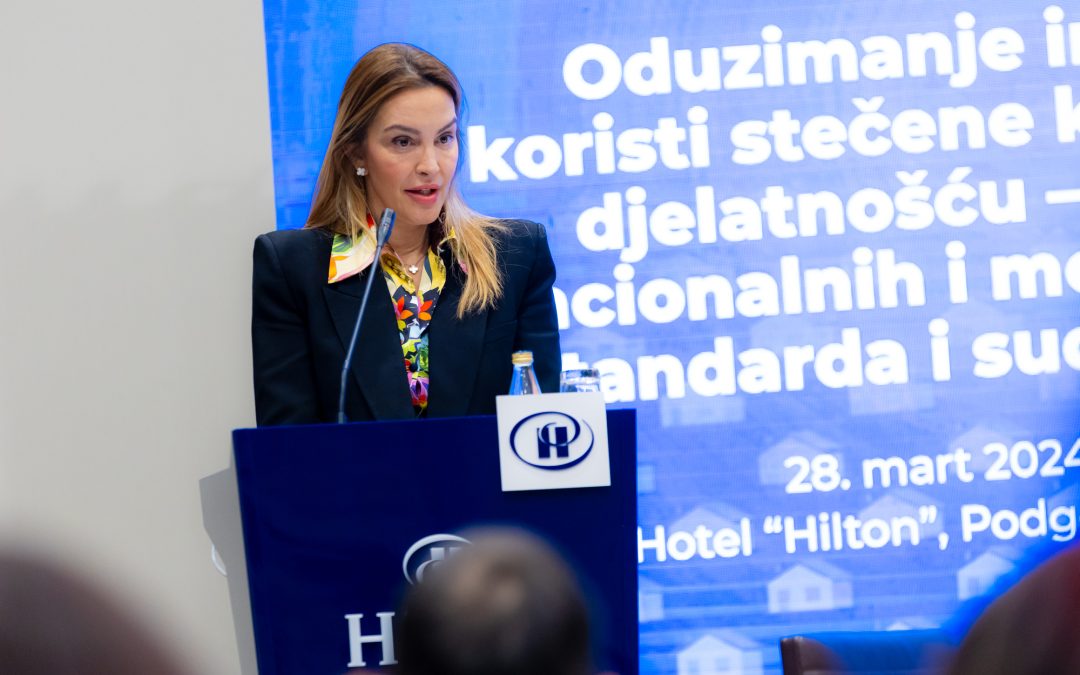Improving the fight against gender-based violence and femicide requires the establishment of a more efficient system for collecting data, the application of best international practices in prosecuting and preventing these crimes, and the elimination of gender-based stereotypes in courtrooms and society in general, it was concluded at the workshop of the Young Judges Network of Montenegro, held today in Podgorica.
The workshop titled “Judicial Response to Femicide and Gender-Based Violence,” organised by the AIRE Center with the support of the Government of the United Kingdom, brought together over 30 participants, including judges of the Young Judges Network, representatives of non-governmental organisations, and legal experts. The Young Judges Network is an informal association of recently appointed judges focused on exchanging experiences, improving practices, and implementing education programs to enhance the application of law and improve judicial skills.
“We must be aware of the importance of the moment we are in now. Gender-based violence and femicide, as its most extreme form, are deeply rooted in our societies, intertwined with a range of economic, political, and social issues that women face, and their consequences are felt almost daily. It is important to continuously discuss ways to improve the judicial response to these crimes, especially with young judges who, at the beginning of their careers, bring new energy, motivation, and readiness to address this pressing issue”, said Biljana Braithwaite, Director of the Western Balkans Program at the AIRE Center.
Braithwaite also referred to the verdict of the Higher Court, which sentenced Dalibor Nikolić to 12 years in prison in the first instance for the murder of his pregnant wife, Zimrita Nerda. It is worth noting that the Higher Prosecutor’s Office demanded the maximum sentence of 40 years in prison for the criminal offence of aggravated murder, but Nikolić was ultimately convicted of domestic violence, a criminal offence carrying a significantly lower prison sentence.
“Only if the judicial sentence reflects the gravity of the crime can it contribute to the suppression or elimination of gender-based violence and femicide. Unfortunately, this verdict has shown that the gender dimension of the murder of women is still not sufficiently understood, which ultimately also reflects on the sentencing for these crimes. AIRE Center research has shown that this is not only a problem in Montenegro but of the entire region, once again confirming that our recommendation for the need for legal recognition of femicide as a separate criminal offence is absolutely justified. Until such legal solutions are adopted, it is necessary to collaborate with the judiciary through research and education to improve the qualification and assessment of mitigating and aggravating circumstances for these criminal acts”, said Braithwaite.
As part of the event, the regional report “Judicial Response to Femicide in the Western Balkans: Legal Framework and Judicial Practice” was presented, which is the result of a three-year study on femicide and provides recommendations for improving the prosecution and suppression of femicide in the region. In the coming period, the AIRE Center will also present guidelines for judges handling femicide cases, which, together with civil society partner organisations and judiciary education institutions, will be promoted in judiciary institutions across the region.
Additionally, since April of this year, the AIRE Center, in collaboration with the Center for Women’s Rights, has been monitoring trials for femicide and gender-based violence in Montenegro, and the results will be presented next year. However, preliminary findings already indicate a concerning situation.
Ivana Jelić, a judge of the European Court of Human Rights and a law professor, familiarised young judges with the ECHR practice, which can serve as a significant guideline in prosecuting gender-based violence and femicide.
“The practice of the ECHR sets legal standards that serve as a vital framework for combating gender-based violence, the most severe form of which is femicide. Accordingly, Contracting States to the Convention are obliged to harmonise their legal frameworks with the relevant European standards, to implement operational measures protecting the lives, dignity, and integrity of women and girls, to react preventively when there is a basis for it, and to conduct effective investigations”, said Judge Jelić.
In nearly two years since its establishment, the Young Judges Network, established by the AIRE Center in collaboration with the Montenegrin Centre for Training in Judiciary and State Prosecution, already gathers one-third of the judges in Montenegro. Today, the new generations of judges have expressed interest and readiness to improve practices in the areas of gender-based violence and femicide.
“Violence is omnipresent, in various forms. Solving this problem is not the task of a single institution but a shared responsibility of the whole society. However, due to their position in the system, courts bear an important part of the responsibility in combating violence against women. Therefore, it is of utmost importance that young judges, at the beginning of their careers, adopt knowledge of international standards and become gender-sensitive to contribute to building a society in which women feel safe and are ready to realise their potential without fear”, said Tijana Badnjar, a judge of the Basic Court in Podgorica and secretary of the Young Judges Network.
As part of the workshop, the “Analysis of ECHR Judgments Regarding Montenegro in 2022” was presented. Valentina Pavličić, the author of this Analysis and Montenegro’s representative before the ECHR, said that in “an era of unpredictable social events and the emergence of innovative methods and technologies in the context of judicial proceedings, of invaluable importance for the Montenegrin judiciary system is to deepen understanding of the latest developments taking place before the international Court and to transparently, efficiently, and pragmatically fulfil its assigned role in the social system, which is dispensing justice based on fair, independent, and impartial principles.”
“This year’s Analysis of the latest ECHR case law regarding Montenegro continues to bring interesting and educational cases on which the Court has made its decisions, and the Committee of Ministers has adopted final Resolutions concluding them as successfully executed. It is our obligation to ensure that the citizens of Montenegro have efficient and credible judicial institutions that protect rights and freedoms in line with the European standard of legal practice,” said Representative Pavličić.

